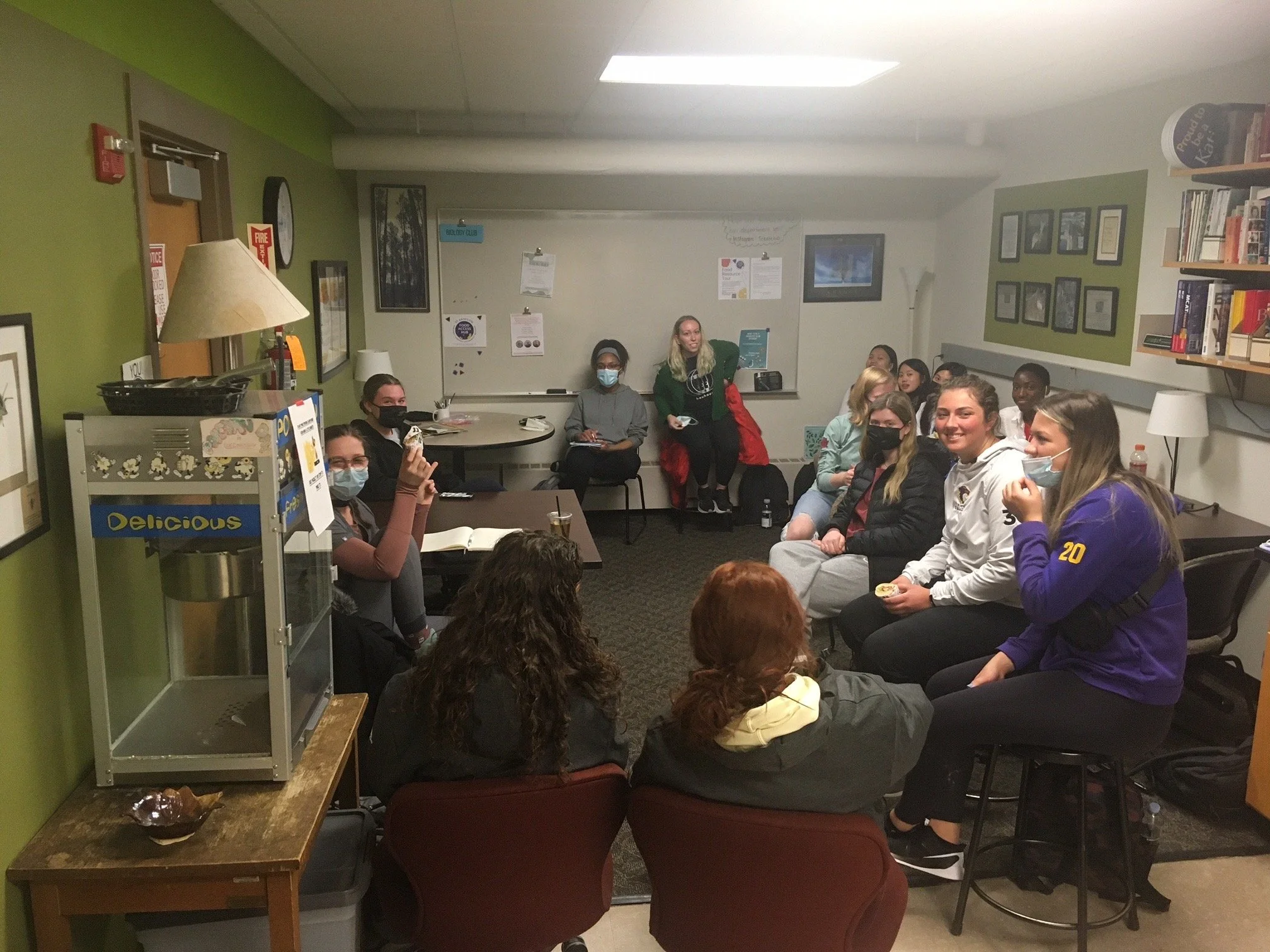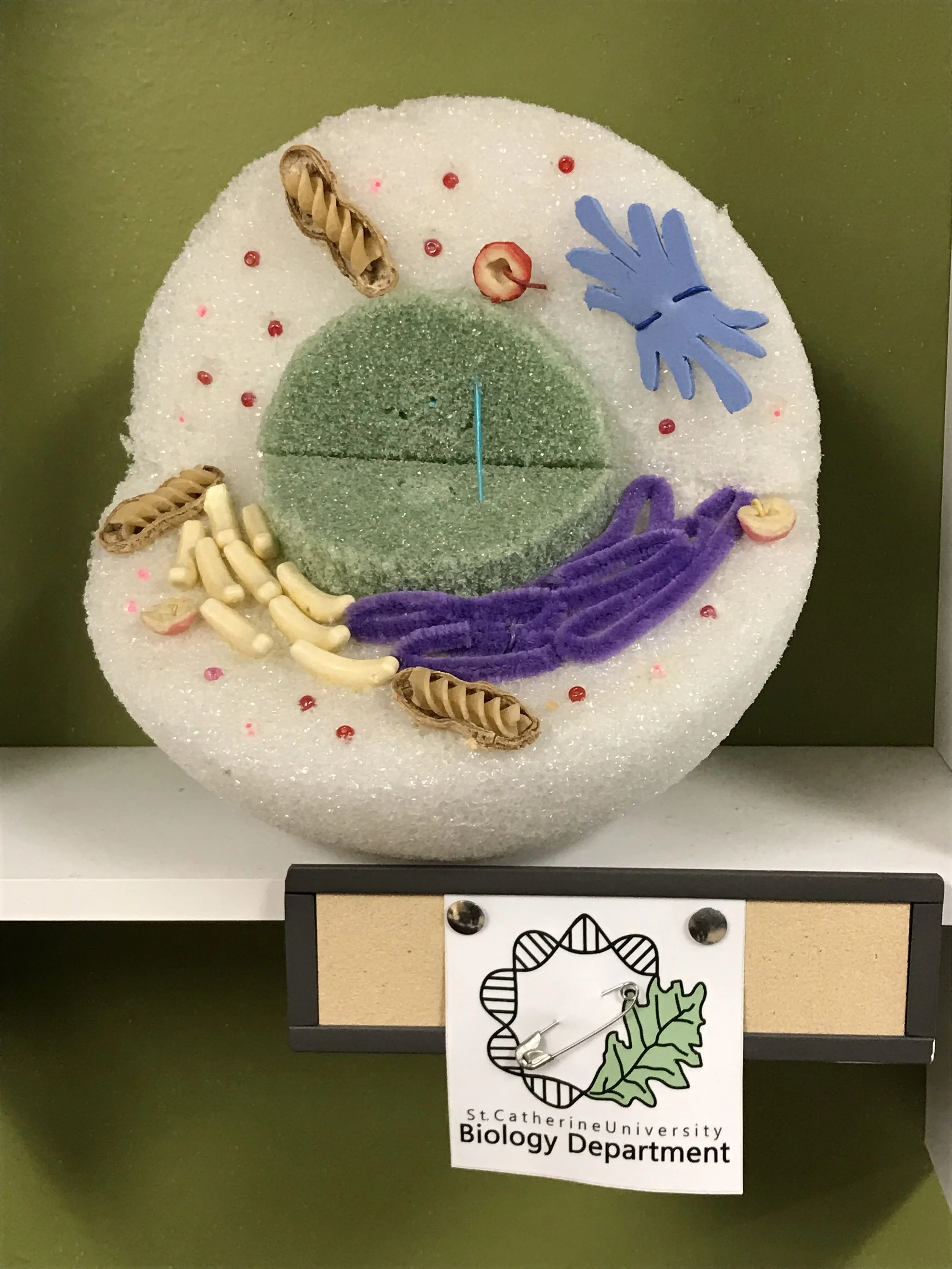What’s Cooking in Biology Club?
Everything you need to know about the coolest club at St. Kate’s
“This club can be whatever you want it to be.”
These are the words of Chris Palahniuk, one of the faculty advisors of the St. Kate’s Biology Club. At the club’s general meeting on April 1, students of all majors and identities gathered in the Biology Study Lounge in the basement of Mendel Hall to discuss upcoming events for what Chris referred to as “one of the most pivotal clubs at St. Kate’s.” Following a brief introduction and encouragement to take as many Jimmy John’s sandwiches as our hearts desired, Chris left the meeting in the hands of Co-President Katie Lilyerd and other club leaders for an open discussion on previous and future Biology Club endeavors.
Biology Club meeting on April 1. Credit: Chris Palahniuk
“I love being in this position to promote student-driven ideas on campus that are almost always fully supported by Chris and Raul who are the advisors for us,” Lilyerd responded when I asked what they love about being co-president of the club. “The Bee Run was an event I helped collaborate on and it was a great way to spread awareness of sustainable efforts and support a great cause, The Great River Coalition, and it helped secure $1,000 in direct funding that goes straight back into campus, and those student-supported initiatives.” Previous Biology Club endeavors include everything from the Bee Run Katie mentioned to a honey harvest and sale, Pollinator Commons funding, BioSeminar lunches, etc.
As I took notes during the meeting, I quickly learned some important things. First, the heart of Biology Club is dependent on the students and leaders who brainstorm creative ideas together in a relaxed, welcoming, creative-positive, and fun environment. Lilyerd hosts events and focuses on student engagement with the help of Hannah and Bernise (Bio Club Treasurers), Kristina (Co-Vice President), and Sophia (Social Media Representative). They are open to any and all ideas group members may have. Second, there are two honey bee hives on top of Fontbonne Hall! The installment of the hives would not have been possible without Biology Club. The bees are lacking some major representation on campus, and if you are not a science major, there is a chance you were completely unaware that we had residential bees in the first place. Third, bees pollinate approximately 75% of the fruits, nuts, & vegetables we consume.
A cellular art model in the Biology Study Lounge
When the weather is—frankly—less insane during the spring and summer, the university is known for its community garden and eye-catching flowers. The bees at St. Kate’s play a critical role in the maintenance of anything that grows on this campus. They deserve a lot more appreciation, if you ask me. Something else I learned was that clubs are changing at St. Kate’s. The COVID-19 pandemic, graduating leaders, and low student engagement have done a number on student organizations. Biology Club has changed its operations to meeting monthly instead of bi-weekly in response to our rapidly changing world, and selecting new leadership was a primary topic of discussion during the meeting.
A refrigerator magnet quote from the Biology Study Lounge
One thing Lilyerd wishes could change is how clubs have to operate at St. Kate’s: “If the administration would make it easier for clubs on campus to have events, food varieties outside of Sodexo (which is a main push and complaint from the SCU student body), and bring in new and different ideas, that would be great. All clubs–not only Biology Club–want to find new and different ways to support and engage with students on campus.”
The aura of Biology Club is like the image above—a combination of warm and cool colors with endless potential. Students are the heart, but a heart cannot function without support and encouragement. These are the things Lilyerd believes would help with student organization goals above all else.
Upcoming events from Biology Club include Earth Week events and a plant sale. The club will be selling mint, rosemary, lavender, chamomile, and more! If you are interested in joining or learning more, email bioclub@stkate.edu.









